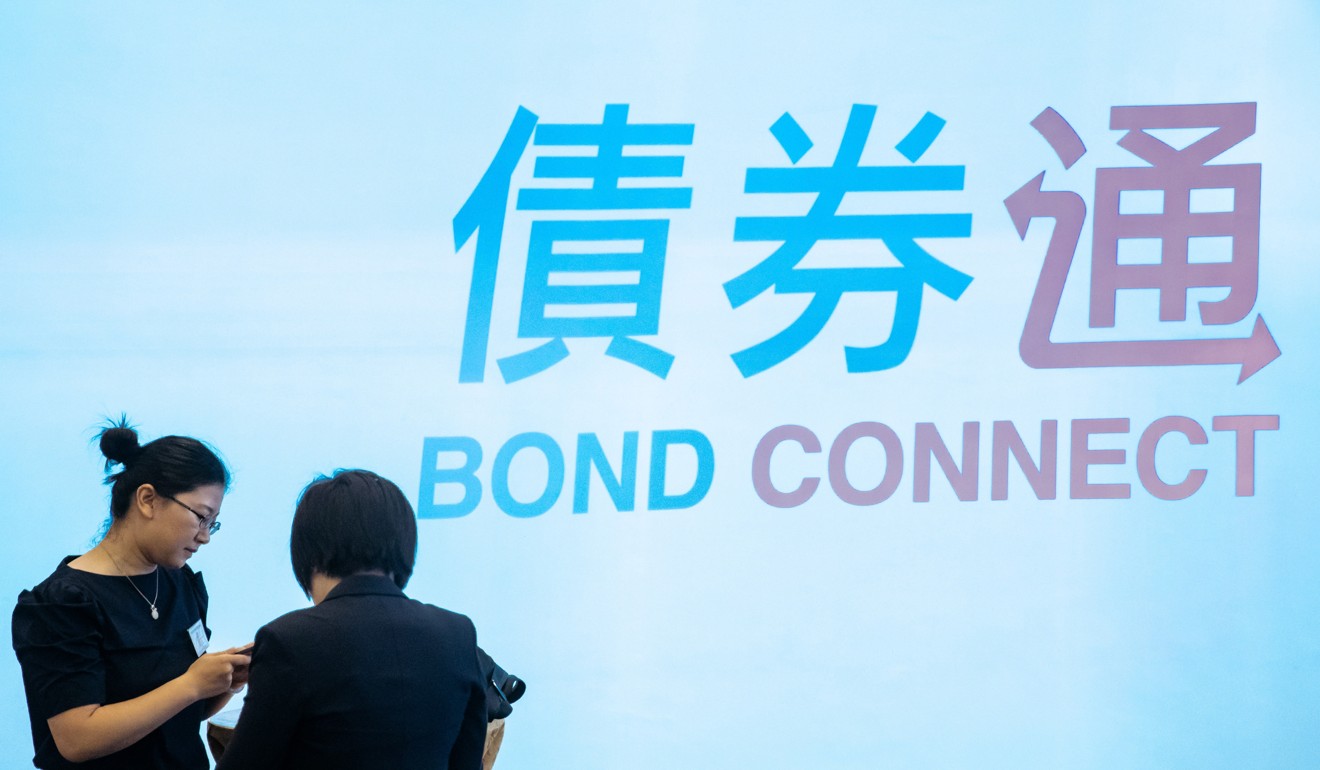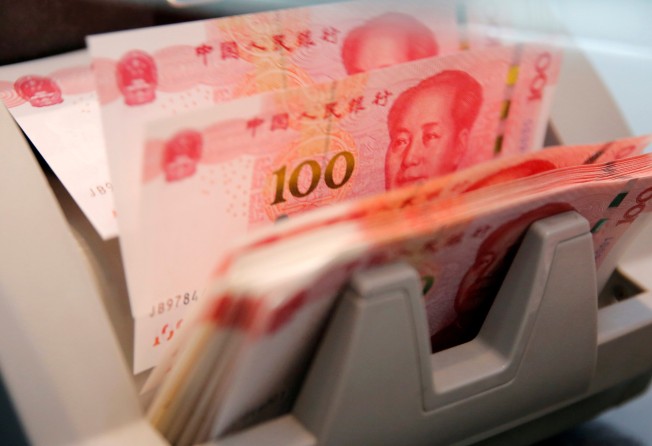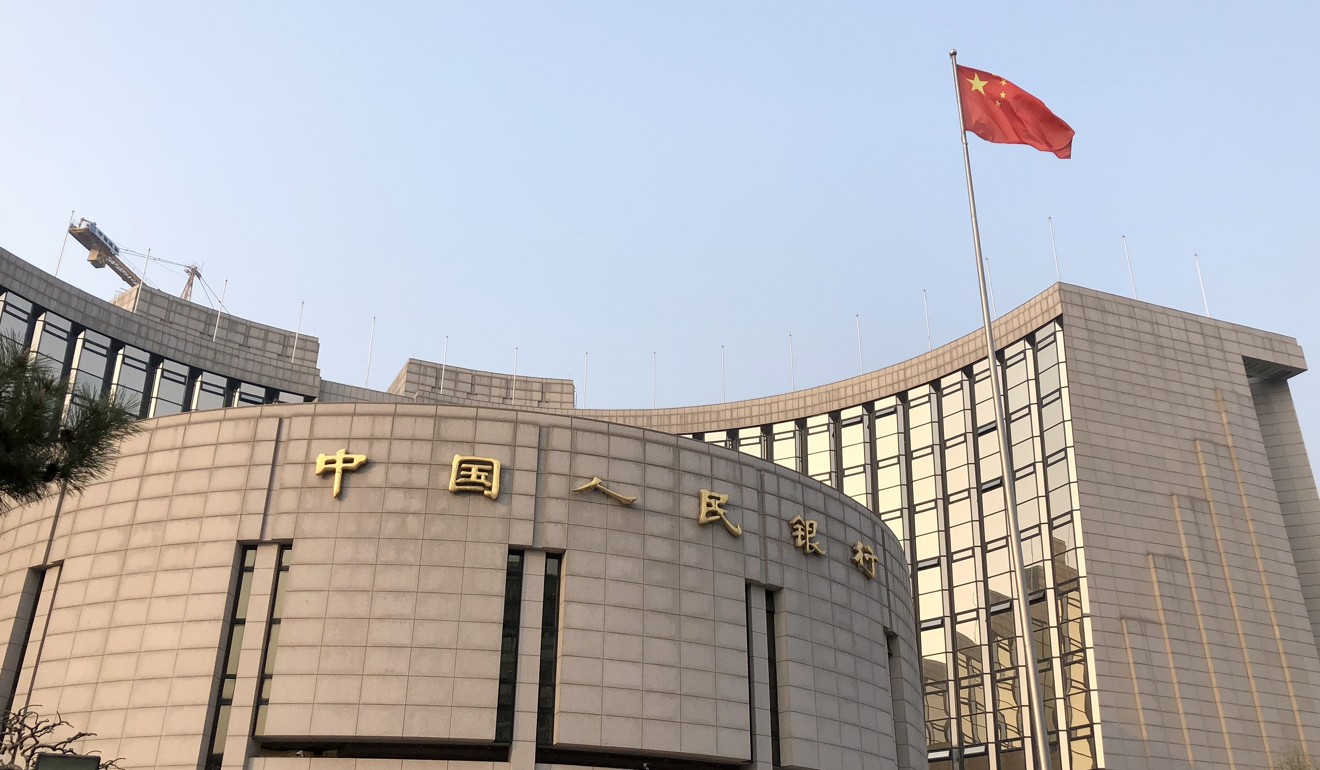
Bond, stock connect schemes seen as playing crucial role in curbing yuan volatility
Analysts now expect to see a cut in its trade surplus as the economy becomes more consumption driven, meaning a rise in foreign goods being bought by Chinese, while domestic investors will invariably look more abroad to diversify their own portfolios

Incoming foreign funds into domestic Chinese equities and bonds will reduce global volatility and offset the currency depreciation pressure now emanating from the US-Sino trade tensions, say analysts.
They also predict the trade surplus will be cut further as the economy becomes more consumption driven, meaning a rise in foreign goods being bought by Chinese, while investors in the country will invariably look more abroad to diversify their own portfolios.
“The opening up of its capital markets to attract foreign investment through the Stock and Bond Connect Initiatives has been very important to China,” said CG Lai, head of global markets, Greater China at BNP Paribas.

Bond Connect was launched on July 3 last year as a mutual market access scheme that allows investors from mainland China and overseas to trade in each other’s respective bond markets.
It has achieved daily average trading volumes of some 3 billion yuan (US$454.36 million), with the value of foreign investor holdings in yuan bonds now standing at around about 130 billion yuan.
The programme ended on its the day a year ago with more than 7 billion yuan worth of mainland Chinese bonds traded by international investors.
At an investment conference on Wednesday, Archie Ng, division head external at the Hong Kong Monetary Authority, added that foreign investor interest in Bond Connect, particularly, was picking up, amid signs China has been relaxing its cross-border flows in recent months.
This is the largest opening up of a capital market in history, which will result in a huge change in terms of asset classes, held where, by global investors over the next 5 to 10 years
Ng is forecasting US$300 billion of further inflows into China’s bond market – assuming a potential inclusion of yuan bonds with a 5-10 per cent weighting – meaning they will take up a greater share of major global fixed-income indexes.
Offshore yuan traded at 6.5968 to the greenback on Wednesday, an 11th daily fall in a row which extended its longest losing streak in four years.
The People’s Bank of China (PBOC), the central bank, is now considered as becoming a lot more dovish, after cutting banks’ reserve requirement ratios over the weekend, and experts expected more cuts to be made in the second half.
OCBC-Wing Hang Bank’s economist Carie Li, however, noted that while the PBOC set the yuan reference rate lower by 0.6 per cent at 6.5569 per dollar on Wednesday, it was actually a lot stronger than previous expectations, given overnight moves by the US dollar and Tuesday’s closing yuan value.

Trading is allowed at up to 2 per cent either side of the currency’s midpoint price.
Li added that Wednesday’s midpoint suggested that while the central bank was allowing gradual depreciation of the currency to support economic growth, it did not want the pace to be too rapid, so as to shake investor confidence and induce uncontrollable outflows.
Michael Levin, head of asset management for Asia-Pacific at Credit Suisse, said he considers the yuan’s volatility remains benign compared with some dramatic swings seen in the euro, the yen, and some emerging-market currencies, against a strong US dollar.
“This is the largest opening up of a capital market in history, which will result in a huge change in terms of asset classes, held where, by global investors over the next 5 to 10 years,” Levin said.
“Attractive yields, strong corporate fundamentals, low default rates, diversification benefits, and multi-trillion dollar investment opportunities are inevitable.”